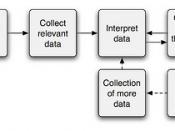Discuss the statement that a positivist approach to research would be an inappropriate approach to researching change management
The generation of information is essential for progress of our society. Knowledge and understanding of our natural, social and economic environments have become the basis of modern societies and organisations and a firm grasp of research methods and processes have become an essential skill for modern managers. There are a few different approaches that may be taken to research and several methods of data gathering and analysis. However, there are two main paradigms in social science research that are as known as positivist research and critical interpretive or action research. This essay will discuss why it is inappropriate to use a positivist approach when researching change management situations.
The key focus of positivist research is based on the idea that the social world exists externally to us and that our world may be measured through objective methods, rather than being inferred subjectively through sensations, reflection or intuition (Faculty of Rural Management, 2002).
Researchers are seen to be separate to research project and its central purpose is to uncover facts. The implication of this is that the choice of what to study, and how to study it, can be determined by objective criteria rather than by human beliefs and interests. The positivist paradigm believes that making comparisons of variations across samples can best identify patterns and irregularities.
Within the positivist paradigm, data is collected in a quantitative manner and can usually be described or represented in numerical form. In order to analyse this data, we do a series of statistical tests to be able to determine the significance and importance of the data to either prove or disprove the hypothesis under consideration. These statistical tests are designed to measure central tendency, dispersion, frequency,


